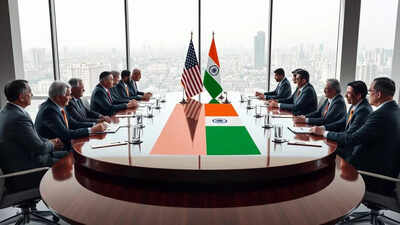Patent regime: US retains India on ‘priority watch list’

NEW DELHI: The US has retained India on its “Priority Watch List,” citing “inconsistent progress” in the protection and enforcement of intellectual property rights (IPR) and describing the country as one of the “most challenging major economies” on IPR.Apart from India, China, Indonesia, Russia, Argentina and Venezuela are among the countries under “priority watch.”
While citing concerns over the patent regime – from revocations to discretionary invocation of patentability criteria and delays – the US Trade Representative in its latest Special 301 Report also pointed to some of the gains it made. For instance, there was a word of praise for the special IPR benches in high courts as well as the Patent (Amendment) Rules notified last year. The report, however, said that stakeholders continued to express concerns over vagueness in the interpretation of the Indian Patents Act.
At the same time, it also raised the red flag over high customs duty – US President Donald Trump’s pet peeve – on several IP-intensive products, including medicines, medical devices, IT goods, solar equipment, medical devices and capital goods. It flagged significant concerns over “inadequate enforcement” and asserted that India is among the top sources of counterfeit medicines.

The report also said copyright holders continue to report high levels of piracy, particularly online and also accused India of not complying with some of its commitments given under WIPO treaties. “Furthermore, stakeholders have reported continuing problems with unauthorised file sharing of video games, signal theft by cable operators, commercial-scale photocopying and unauthorised reprints of academic books, and circumvention of technological protection measures.“
The other worry is the insufficient legal framework to protect trade secrets. “Criminal penalties are not expressly available for trade secret misappropriation in India and civil remedies reportedly are difficult to obtain and do not have a deterrent-level effect. US and Indian companies have identified trade secret protection as a growing concern and expressed interest in India eliminating gaps in its trade secrets regime, such as through the adoption of trade secret legislation that comprehensively addresses these concerns.One particular issue highlighted by stakeholders is the requirement for companies to disclose their source code for telecom equipment undergoing required certification and security testing at designated Indian facilities.”


